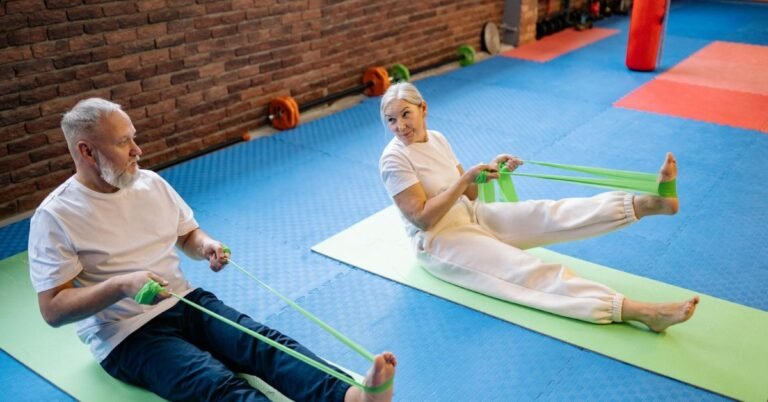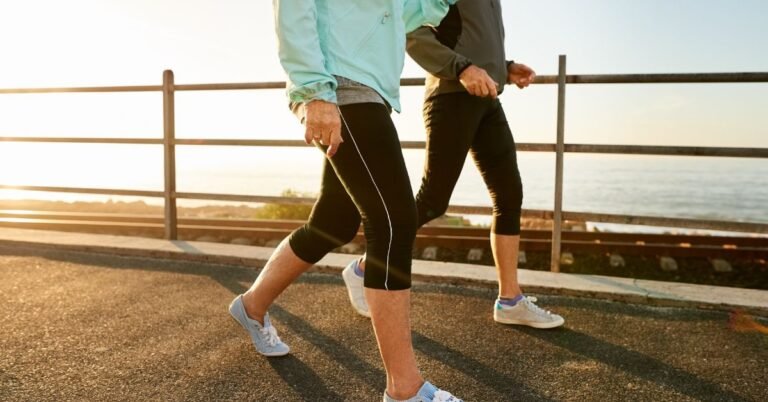It’s widely accepted that our immune response is inextricably linked to our general health. In this post, we explore the profound benefits of exercise and physical activity on our immune system.
We investigate ways to protect ourselves against infections and diseases, as well as reducing the negative immunosuppression effects that inactivity, stress, anxiety and isolation can have.
What we’ll cover:
The immune System and Exercise
The human immune system is incredibly complex. It consists of innate and adaptive responses performed by diverse specialised cells and molecules. The extensive positive effect exercise can have on our immune system is well known and documented in scientific literature. Some of this evidence dates back to the start of the last century, with a big increase in the last few decades.
Exercise has both direct and indirect effects on our immune system (1). The direct effects include the ‘priming’ of immune cells to perform their functions more effectively, such as:
- To increase their surveillance throughout our circulation
- To perform their ‘killer’ actions better
- To increase their recognition of antigens and foreign substances
The indirect effects include:
- The reprogramming of immune cells
- Enhanced systemic anti-inflammatory signalling
- Positive effects on the lymphatic circulation
The growing body of evidence demonstrating these beneficial effects comes from a variety of different types of research and studies. Ranging from studies looking at the immediate effects of acute bouts of exercise or periods of inactivity on our immune functioning, to longer term studies investigating the immune system response and susceptibility of large groups of people with different physical activity levels.
Acute bouts of moderate to vigorous exercise (under 60 mins) have been shown to enhance immunosurveillance against pathogens and cancer cells, and reduce markers of systemic inflammation (1). One of the ways physical activity does this is by enhancing our circulatory system via increased cardiac output (the heart pumping faster and harder), vasodilation (widening of the vessels) and increased blood flow.
Consequently there are more activated immune cells circulating around our bodies ready to perform their essential functions. These enhanced immune responses have been observed in acute bouts of aerobic and resistance training (2).
By regularly engaging in physical activity these acute effects stack up, leading to reduced illness incidence and dampened systemic inflammation. Moderate-intensity activity performed regularly can improve, or at least maintain our immunity across our lifespan (3). Numerous studies have demonstrated reduced incidence, severity and duration of upper respiratory tract infections in participants who perform moderate regular exercise (4).
The extent of the reduction in symptoms with daily moderate exercise in these studies was the same effect size seen from most medications! Similar reduced mortality and incidence rates have also been seen in epidemiological studies for influenza and pneumonia (5).
Furthermore a number of studies have demonstrated improved response to vaccinations from acute bouts and regular engagement in physical activity over the lifetime (6). Specifically, exposure to prolonged moderate aerobic exercise increases the immune response to influenza and pneumonia vaccines in older adults (7).
Increasing evidence is also showing that regular exercise has an overall anti-inflammatory effect on the body. We’ve discussed chronic low-grade systemic inflammation before in a number of posts: it is being increasingly linked to multiple diseases and conditions, including obesity, arthritis, cardiovascular disease, kidney disease, insulin resistance, type two diabetes, chronic obstructive pulmonary disease, dementia, depression and a number of different types of cancers.
Long term regular exercise has been shown to switch the expression of certain receptors on immune cells to increase anti-inflammatory actions (8). Other substantial but more indirect effects of regular exercise on our immune health are attributed to positive changes in body composition, metabolism and improvements in cardiovascular and endothelial function (9).
Another recently surfacing area of interest is the effect of exercise on our gut. The gut microbiota is an incredibly exciting area of research at the moment, as evidence is showing us time and time again how much influence our gut health has on our overall health and functioning, physically and cognitively.
Diversity within our gut bacteria is key. Our gut bacteria is influenced by a range of factors including diet, age, gender, health, disease, genetics, and also importantly, exercise. Recent studies are showing that regular exercise helps to diversify our gut bacteria (10).
Physical inactivity and immune response
Evidence is also building up showing the consequences of physical inactivity on our immune health, affecting the innate and adaptive system. Impaired immune cell functioning, proliferation and production are seen, as well as increased systemic inflammation. Research in this area mainly comes from studies investigating the effects of bed rest or spaceflight on astronauts, and animal models with induced limb-unloading (11).
The consequences of induced physical inactivity on the immune response of astronauts has been documented during and after space flight, including increased incidents of urinary tract infection and reactivation of latent herpes virus (12). Evidence for the effects of prolonged physical inactivity on our immune system is also extrapolated from the reduced antibody responses of obese individuals and their heighted risk of viral and bacterial infections (13) (14).
Stress and the immune response
Stress and anxiety are known to have negative impacts on our immune health. Glucocorticoids such as cortisol (also known as the stress hormone) is elevated when we are stressed. In acute situations this is a vital response, it ensures we have the energy and substrates required to deal with whatever stressful situation we are in.
However chronic, excessive and prolonged cortisol secretion can have devastating effects physically and psychologically. Exaggerated stress responses have been linked to widespread inflammation, chronic pain, increased risk of a number of non-communicable diseases, inhibition of our normal critical immune response and increased susceptibility to infection (15) (16).
The profound benefits of exercise on our mental health is well established; regular exercise reduces levels of depression, anxiety and promotes positive changes in our mental health and ability to cope in stressful situations (17). The benefits of physical activity have equally been demonstrated at a physiological level: neutralisation of the negative effects of stress on blood pressure (18), reduction of the stress-induced increase in stress hormones and the prevention of the stress-induced immunosuppression (19).
Immune response as we age
Our immune system unfortunately declines in function as we get older. This is termed ‘immunosenescence’. It is associated with increased susceptibility to viral and bacterial infections, reduced response to vaccinations, reduced immunosurveillance and increased incidences of a number of cancers. Remodelling and reduced functioning of the innate and adaptive immune system occurs, in tangent with increased systemic inflammation and the loss of skeletal muscle mass (an important immune regulatory organ).
There is increasing evidence showing that regular physical activity can slow down or even stop a number of these mechanisms (20). More research is needed to strengthen the case for the causative effect of long term physical activity on immunosenescence. We would personally like to see more research into the relationship between reducing the loss of skeletal muscle mass and maintaining our immune health!
Final thoughts
It is pretty clear that regular aerobic and resistance exercise have a vital role to play in optimising and stimulating our immune function throughout our lives. Although the exact mechanisms through which exercise exhibits its positive effects on our immune systems are only just starting to be understood, it appears the effects are numerous, direct and indirect.
More research is needed to tell us more about the exact mechanisms, as well as the optimum types and dosages of exercise across our lives. But what we know so far is that regularly engaging in physical activity across the lifespan is perhaps the best way we can protect ourselves. Ultimately, we have the ability to live happier and healthier lives just by keeping our bodies moving and #keepingstrong.




